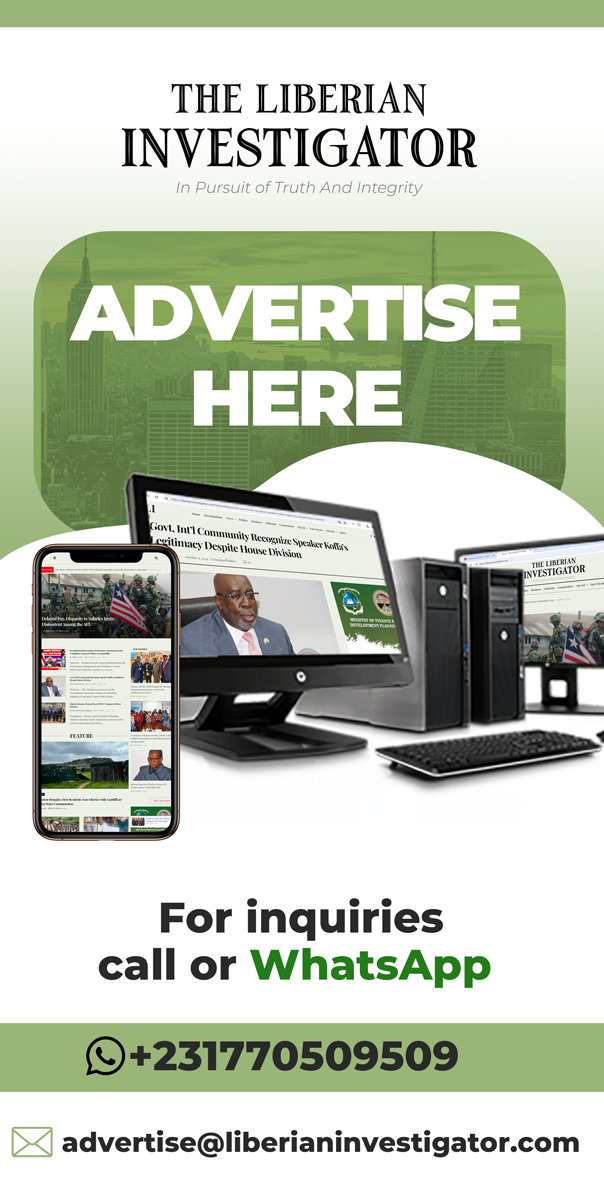One of the hallmarks of our democracy is the freedom of speech. Even in the worst of times, Liberians have boldly spoken out – rightly or wrongly. The recent speech by the Independence Day Orator is a case in point. We must celebrate living in a society where freedom of speech and expression is sacrosanct, but we must also exercise caution in using that freedom. At several points in her speech, the Orator stated, “Dignity must define us.” One of the cardinals of dignity is how you treat your friends, especially when they are invited guests. The Orator failed to live up to her call for dignity. Furthermore, her impression of the United States-Liberia relationship is one I do not share.
By Senator Amara Konneh
The United States is our partner, our friend, and our ally. Truth be told, if not for the US, Liberia would not exist today. We would have been broken up and absorbed by colonial powers. Though the last to recognize our independence, as the Orator rightly stated, the United States was the protector of our independence, saving us from further annexation by the United Kingdom (Sierra Leone) and France (Cote d’Ivoire).
Additionally, most of our core and endearing infrastructure – RIA, JFK, Port of Monrovia, to name a few – was built by the United States. When we were besotted by war and self-annihilation in the 1990s, it was the United States that stepped in in 2003 to end the violence and bring about the peace we enjoy today. Furthermore, when ravaged by the Ebola outbreak, support and leadership from the U.S. helped us save our lives. The United States has been there for us whenever we’ve been in need.
Likewise, Liberia has been a loyal friend to America. In the throws of World War I, Liberia entered the war on the side of the Allies and was attacked by Germany in 1918. Undeterred, Liberia joined the Allies again during World War II. It gave America carte blanche to “construct, control, operate, and defend such commercial and military airfields as might be deemed necessary by mutual agreement” in support of the war effort. Throughout the Cold War, Liberia played a vital role by hosting the Omega Tower, the Voice of America station, and as a regional hub for the United States. Even after the September 11 terrorist attack, Liberia vowed to stand by the United States in its hour of need.
The U.S. relations with Liberia date back to 1819, when the US Congress appropriated $100,000 to establish Liberia. We have received, and we have given. That’s what friends and aliens do for each other.
However, like in every relationship, one side is not always happy with the other. At times, we wish America had done more. Likewise, the United States has wished we had done more. This is healthy and natural. But such disagreements must be hashed out in an air of dignity and mutual respect. This is where the Independence Day Orator got it wrong. This is where she failed. You do not invite a guest into your house to insult them.
Fortunately, Liberia and the United States are democracies guided by the fundamental belief in freedom of speech. Citizens have the right to speak their minds even if they’re wrong. The Orator spoke as a private citizen without any official ties to the present government. Unfortunately, freedom of speech was overstretched at a formal state function, and she failed to live up to her own words, “dignity must define us.”
But let’s not let this faux pas distract us from some of the critical messages shared by the 2024 Independence Day National Orator, indisputably one of Liberia’s most brilliant minds. She said,
“Somehow, somewhere, someway, we lost touch with our common humanity. We created citizenship tiers based on ethnicity, class, gender, religion, and race. We mortgaged our resources to the highest bidder. We placed profit before people and the planet. We silenced and suppressed dissent. We mistook autocracy for democracy. We failed to preserve and protect the cultural, artistic, and scholarly traditions that fill our hearts, enliven our souls, and sharpen our minds. We fought brutal, protracted wars that left death and destruction in their wake. And in the aftermath of such carnage, we achieved ‘negative peace’, the absence of direct physical violence, when we should have pursued ‘positive peace’, the absence of ‘structural violence’….
“In this, our 177th year, I urge us to re-imagine what it means to be “one nation indivisible.” Oh, how “sweet” this country could be if we only rebuilt it for all of us to enjoy. We must believe that there is sufficient space to accommodate our differences and our shared experiences. That there are enough resources to supply our basic needs and cultivate our God-given talents. And, so, we must narrow wide gaps between the poor and prosperous, the powerless and powerful, women and men, girls and boys, young and old, rural and urban, domestic and diasporic.”
These are profound words with which I identify and amplify. This is the message I will take away from Dr. Robtel Pailey’s oration to the nation. Living up to these words and driving this agenda is also how we can best move forward with our friend and ally, the United States.









Discussion about this post